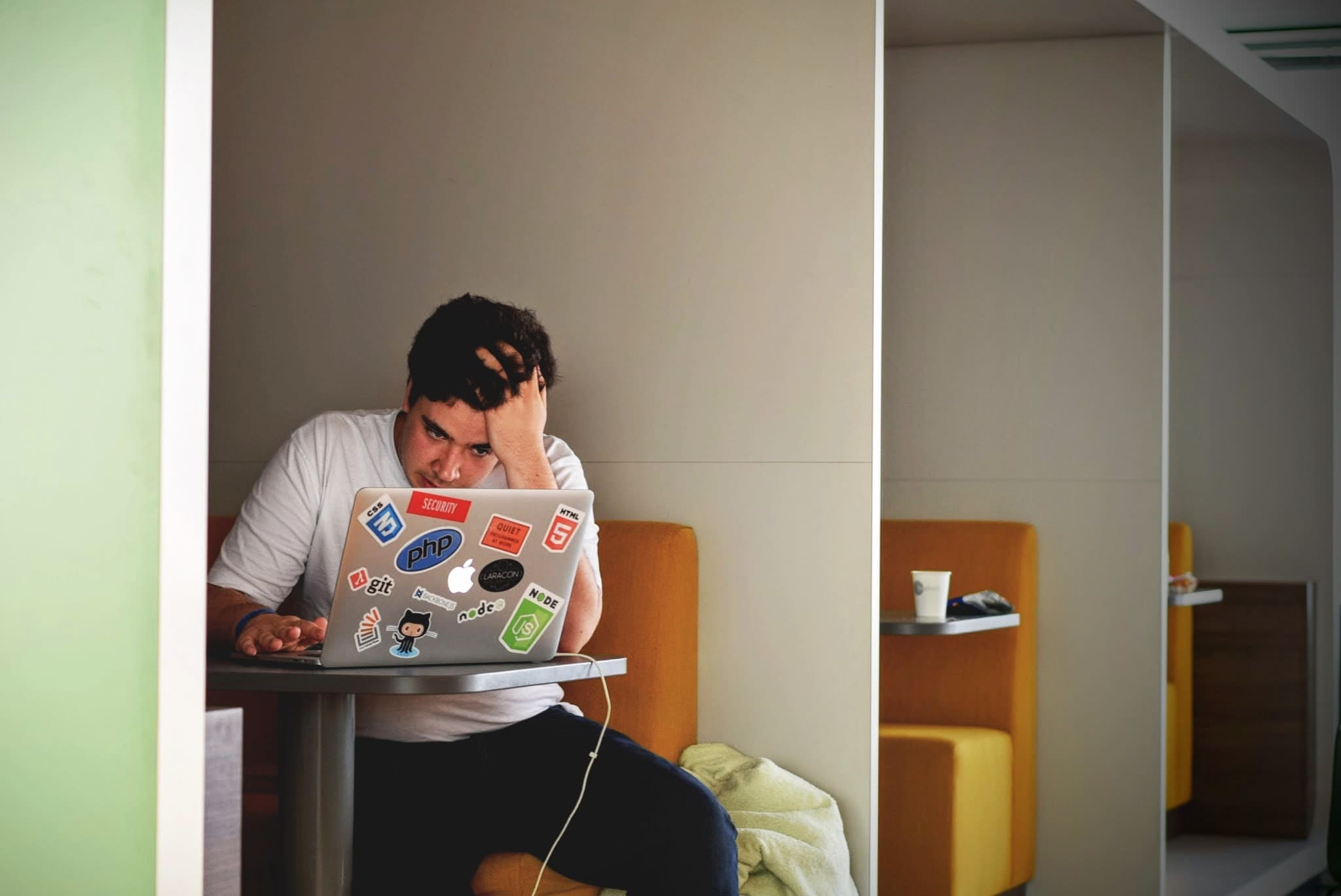Roar writer Camilla Alcini on mental health awareness among university students and what has been done to improve it.
When I first started university almost two years ago, the thing that excited me the most, besides moving to London, was the possibility of meeting new people. I knew that they were going to be interesting individuals, from various backgrounds and countries, who ended up at King’s to embark on a new adventure just like me. I was looking forward to meet them, and for once, reality did not fail my expectations at all. In my classes, I found a stimulating environment with genuinely bright people.
It has been, as I said, almost two years now and I got the chance to know many of my course mates well enough, even as the pandemic started just when we were actually bonding as a group. The other day, one of us sent a message to the group. Let’s call her El. El said that she would not graduate with us next year, and that it was due to her serious mental health condition.
That did not come as a surprise to me. In fact, El is a dear friend of mine and I had first learnt her mental condition some months before. I already had this conversation with her and I was already inspired by her braveness in asking for help, as well as making difficult choices while already going through a lot. What came as a surprise instead, was the chain reaction that her message triggered.
In a few hours, a WhatsApp group with more than 100 people was filled with messages of love, applauding the courage of a member of ours to share her experience, and showing some form of support. I was genuinely happy about this flow of empathy and kindness, things that have been feeling rare in the past months. It was a heart-warming moment that reminded me the beauty of social interactions and communities.
The PPE survey
But this is still not it. We are the “PPE peopleâ€, which means (and feel free to call me an intellectual snob, I might be a little) that we often tend to link theory to practice and vice versa. Problem-solving is our favourite sport. We naturally need to connect the dots, and after less than 24 hours from El’s message, someone in the group sent out a survey.
The message attached to it read: “I’m really glad we got to open up the conversation about mental health in our programme in the past few days. Since I got the feeling that it isn’t just a small minority but a significant number of us who struggle with mental health issues, I think we should look at some numbersâ€.Â
And so we did. Out of 80 people who responded to the survey, 92.5% answered “yes†to the first question, “Have you struggled with mental health issues since starting the PPE course?â€. Out of the 74 people that answered yes, a vast majority had experiences stress and anxiety. The other most common illnesses indicated in the survey were burn-out, depression, insomnia and panic attacks.Â
As I kept on reading the results, my shock and sadness grew. 11.7% of people said they had suicidal thoughts; 10.4% engaged in self-harm; 19.5% developed eating disorders.Â
Were my course mates going through all this? How? When? And most importantly, why? The survey did not answer such questions, however it provided another important fact: 73.4% said that their studies have worsened the symptoms. Moreover, 12.7% declared that they are the main reason behind the symptoms.
University and mental health: a complicated relationship
And here we come to one of the cruxes of the matter. What is the relationship between university and mental health? I am still hoping to find out, but from the data collected and the chats I have had with my friends across these two years, there are at least three ways in which King’s is negatively impacting our mental health.Â
Firstly, grades. It does not come as a surprise that we care about them and we all try our best to do well. Nevertheless, especially with the pandemic, attaining a “first” started to feel like a sporadic, titanic accomplishment. This is true for essays, especially those in humanities, where getting 70 out of 100 is a mission impossible for the majority. The consequences of this are obvious: frustration, as well as stress and anxiety. We lose interest and self-confidence, we get demotivated and start to develop negative feelings towards the university environment.
Second, the staff. King’s houses brilliant staff, including personal tutors. Tutors are academic members of staff “who will take an active interest in a student’s academic progress and university experience, and is concerned for a student’s general welfareâ€. While there are plenty of good stories about personal tutors caring a lot about their tutees, there are even more about personal tutors who either disappeared or simply did not care. ‘Active’ interest is key here, as many students won’t always reach out if they are struggling. Of course, the same goes for lectures and teaching assistants, even though they are less obligated to directly take concern over students’ welfare; they can be an asset, as well as play a negative role.
Finally, the labyrinth of bureaucracy. Bureaucracy is one of the most stressful things that every student has to deal with, and it is everywhere. Most of the time, bureaucracy, though necessary, is an obstacle to direct communication. We get lost in the floods of emails in our inboxes, and feel overwhelmed. “The ridiculously opaque and unhelpful bureaucracy around options such as taking an interruption, and mixed messaging from admin has been the exact opposite of support. Feeling completely abandoned by an institution I’ve worked so hard to become part of is terrible”, these are the harsh words of one anonymous comment in the PPE survey, and this is not restricted to students. Findings from a report by Liz Morrish highlight how the growing bureaucracy required to complete regulatory requirements, metrics, audits and sector reviews reduces job satisfaction and increases frustration and stress.
It is a crisis. Findings from national surveys
ONS’ Student COVID-19 Insights Survey in England shared extremely troubling findings. With almost two-thirds of students reporting worsened symptoms of a mental health condition, they were also the ones more vulnerable to loneliness during the pandemic: 26% reported experiencing loneliness, compared to 8% among the adult population.
The pandemic has made everything worse. However, the issues are rooted well before this. A study conducted in 2018 by Insight network and DigIn found that one in five students had a current mental health diagnosis. Furthermore, one in three experienced a serious psychological issue for which they felt they needed professional help. Dangerously, 75.6% have concealed their symptoms due to fears of stigma.
It is that bad. Universities struggle to deal with the growing number of students with mental health conditions, but they have recognised the problem. For instance, King’s College London is leading SMaRteN, a national research network funded by UK Research and Innovation focusing on Student Mental Health in Higher Education. One of the comments in the survey of the PPE group declared: “I would just like to bring up how grateful and appreciative I am of how seriously KCL takes mental health, specifically with regards to MCFs and extensions. I have heard of friends at other unis who have not been had their mental health taken seriously. Their MCFs etc. were rejected because they were not perceived as reasonable grounds. I really encourage KCL to continue taking mental health seriously”.
What happens next then? As humans we thrive in crisis. What students are experiencing with mental health is indeed a crisis, and we will overcome it. It requires everyone’s support to make it work. Nonetheless, there is something we can do now: have the conversation. One of the answers to El’s message was: “Thank you El for speaking out. As someone who has also been struggling this year, hearing everyone’s words of support has really helped. It is so reassuring to see that I’m not the only oneâ€. This is the power of words and communities. Subsequently, let’s educate ourselves. Familiarise ourselves with the symptoms, read papers, listen to experts, prepare. Using El’s words: “It’s human, and likely to affect us all at some point in our lives. You don’t want to be left with zero defence mechanismsâ€.


















